- Home
- Janet Evanovich
One for the Money Page 2
One for the Money Read online
Page 2
And if that wasn't depressing enough, I'd weakened halfway through dessert and promised my mother I'd go see Vinnie.
I dragged myself into the shower and stumbled out a half hour later after an exhausting crying jag. I stuffed myself into pantyhose and a suit and was ready to do my daughterly duty.
My hamster, Rex, was still asleep in his soup can in his cage on the kitchen counter. I dropped a few hamster nuggets into his bowl and made some smoochy sounds. Rex opened his black eyes and blinked. He twitched his whiskers, gave a good sniff, and rejected the nuggets. I couldn't blame him. I'd tried them for breakfast yesterday and hadn't been impressed.
I locked up the apartment and walked three blocks down St. James to Blue Ribbon Used Cars. At the front of the lot was a $500 Nova begging to be bought. Total body rust and countless accidents had left the Nova barely recognizable as a car, much less a Chevy, but Blue Ribbon was willing to trade the beast for my TV and VCR. I threw in my food processor and microwave, and they paid my registration and taxes.
I drove the Nova out of the lot and went straight to Vinnie. I pulled into a parking space at the corner of Hamilton and Olden, extracted the key from the ignition, and waited for the car to thrash itself off. I said a short prayer not to be spotted by anyone I knew, wrenched the door open, and scuttled the short distance to the storefront office. The blue and white sign over the door read “Vincent Plum Bail Bonding Company.” In smaller letters it advertised twenty-four-hour nationwide service. Conveniently located between Tender Loving Care Dry Cleaners and Fiorello's Deli, Vincent Plum catered to the family trade—domestic disturbances, disorderlies, auto theft, DWI, and shoplifting. The office was small and generic, consisting of two rooms with cheap walnut paneling on the walls and commercial grade rust-colored carpet on the floor. A Danish modern couch upholstered in brown Naugahyde pressed against one wall of the reception area, and a black and brown metal desk with a multiline phone and a computer terminal occupied a far corner.
Vinnie's secretary sat behind the desk, her head bent in concentration, picking her way through a stack of files. “Yeah?”
“I'm Stephanie Plum. I've come to see my cousin, Vinnie.”
“Stephanie Plum!” Her head came up. “I'm Connie Rosolli. You went to school with my little sister, Tina. Oh jeez, I hope you don't have to make bail.”
I recognized her now. She was an older version of Tina. Thicker in the waist, heavier in the face. She had lots of teased black hair, flawless olive skin, and a five-o'clock shadow on her upper lip.
“The only thing I have to make is money,” I said to Connie. “I hear Vinnie needs someone to do filing.”
“We just filled that job, and between you and me, you didn't miss anything. It was a crummy job. Paid minimum wage, and you had to spend all day on your knees singing the alphabet song. My feeling is, if you're going to spend that much time on your knees, you could find something that pays better. You know what I mean?”
“Last time I was on my knees was two years ago. I was looking for a contact lens.”
“Listen, if you really need a job, why don't you get Vinnie to let you do skip tracing? There's good money in it.”
“How much money?”
“Ten percent of the bond.” Connie pulled a file from her top drawer. “We got this one in yesterday. Bail was set at $100,000, and he didn't show up for a court appearance. If you could find him and bring him in, you'd get $10,000.”
I put a hand to the desk to steady myself. “Ten thousand dollars for finding one guy? What's the catch?”
“Sometimes they don't want to be found, and they shoot at you. But that hardly ever happens.” Connie leafed through the file. “The guy who came in yesterday is local. Morty Beyers started tracking him down, so some of the prelim is already done. You've got pictures and everything.”
“What happened to Morty Beyers?”
“Busted appendix. Happened at eleven-thirty last night. He's in St. Francis with a drain in his side and a tube up his nose.”
I didn't want to wish Morty Beyers any misfortune, but I was starting to get excited about the prospect of stepping into his shoes. The money was tempting, and the job title had a certain cachet. On the other hand, catching fugitives sounded scary, and I was a certifiable coward when it came to risking my body parts.
“My guess is, it wouldn't be hard to find this guy,” Connie said. “You could go talk to his mother. And if it gets hairy, you could back out. What have you got to lose?”
Only my life. “I don't know. I don't like the part about the shooting.”
“Probably, it's like driving the turnpike,” Connie said. “Probably, you get used to it. The way I see it, living in New Jersey is a challenge, what with the toxic waste and the eighteen-wheelers and the armed schizophrenics. I mean, what's one more lunatic shooting at you?”
Pretty much my own philosophy. And the $10,000 was damned appealing. I could pay off my creditors and straighten my life out. “Okay,” I said. “I'll do it.”
“You have to talk to Vinnie first.” Connie swiveled her chair toward Vinnie's office door. “Hey Vinnie!” she yelled. “You got business out here.”
Vinnie was forty-five, 5' 7" without his lifts, and had the slim, boneless body of a ferret. He wore pointy-toed shoes, liked pointy-breasted women and dark-skinned young men; and he drove a Cadillac Seville.
“Steph here wants to do some skip tracing,” Connie said to Vinnie.
“No way. Too dangerous,” Vinnie said. “Most of my agents used to be in security. And you have to know something about law enforcement.”
“I can learn about law enforcement,” I told him.
“Learn about it first. Then come back.”
“I need the job now.”
“Not my problem.”
I figured it was time to get tough. “I'll make it your problem, Vinnie. I'll have a long talk with Lucille.”
Lucille was Vinnie's wife and the only woman in the burg who didn't know about Vinnie's addiction to kinky sex. Lucille had her eyes firmly closed, and it wasn't my place to pry them open. Of course, if she ever asked . . . that'd be a whole other ball game.
“You'd blackmail me? Your own cousin?”
“These are desperate times.”
He turned to Connie. “Give her a few civil cases. Stuff that involves telephone work.”
“I want this one,” I said, pointing to the file on Connie's desk. “I want the $10,000 one.”
“Forget it. It's a murder. I should never have posted bail, but he was from the burg, and I felt sorry for his mother. Trust me, you don't need this kind of trouble.”
“I need the money, Vinnie. Give me a chance at bringing him in.”
“When hell freezes over,” Vinnie said. “I don't get this guy back, I'm in the hole for a hundred grand. I'm not sending an amateur after him.”
Connie rolled her eyes at me. “You'd think it was out of his pocket. He's owned by an insurance company. It's no big deal.”
“So give me a week, Vinnie,” I said. “If I don't get him in a week, you can turn it over to someone else.”
“I wouldn't give you a half hour.”
I took a deep breath and leaned close to Vinnie, whispering in his ear. “I know about Madam Zaretski and her whips and chains. I know about the boys. And I know about the duck.”
He didn't say anything. He just pressed his lips together until they turned white, and I knew I had him. Lucille would throw up if she knew what he did to the duck. Then she'd tell her father, Harry the Hammer, and Harry would cut off Vinnie's dick.
“Who am I looking for?” I asked Vinnie.
Vinnie handed me the file. “Joseph Morelli.”
My heart flipped in my chest. I knew Morelli had been involved in a homicide. It had been big news in the burg, and details of the shooting had been splashed across the front page of the Trenton Times. VICE COP KILLS UNARMED MAN. That had been over a month ago, and other, more important, issues (like the exact amount of the lottery) ha
d replaced talk of Morelli. In the absence of more information, I'd assumed the shooting had been in the line of duty. I hadn't realized Morelli'd been charged with murder.
The reaction wasn't lost to Vinnie. “From the look on your face, I'd say you know him.”
I nodded. “Sold him a cannoli when I was in high school.”
Connie grunted. “Honey, half of all the women in New Jersey have sold him their cannoli.”
Stephanie Plum 1 - One for the Money
2
I BOUGHT A CAN OF SODA at Fiorello's and drank while I walked to my car. I slid behind the wheel, popped the top two buttons on my red silk shirt, and stripped off my pantyhose as a concession to the heat. Then I flipped open Morelli's file and studied the photos first—mug shots from Morelli's booking, a candid picture of him in a brown leather bomber jacket and jeans, and a formal pose in a shirt and tie, obviously clipped from a police publication. He hadn't changed much. A little leaner, perhaps. More bone definition in the face. A few lines at the eyes. A new scar, paper thin, sliced through his right eyebrow, causing his right eyelid to droop ever so slightly. The effect was unsettling. Menacing.
Morelli had taken advantage of my naiveté not once, but twice. After the scene on the bakery floor, he'd never called, never sent me a postcard, never even said good-by. And the worst part of it all was that I'd wanted him to call. Mary Lou Molnar had been right about Joseph Morelli. He'd been irresistible.
History, I told myself. I hadn't seen the man more than three or four times in the past eleven years, and each time had been at a distance. Morelli was a part of my childhood, and my childish feelings for him had no place in the present. I had a job to do. Plain and simple. I wasn't out to avenge old injuries. Finding Morelli had nothing to do with revenge. Finding Morelli had to do with the rent money. Yeah, right. That's why I suddenly had this knot in my stomach.
According to the information on the bond contract, Morelli lived in an apartment complex just off Route 1. This seemed like a good place to start looking. I doubted Morelli would be in his apartment, but I could question his neighbors and see if he was picking up his mail.
I set the file aside and reluctantly squeezed my feet back into my black heels. I turned the key in the ignition. No response. I gave the dash a hard shot with my fist and let out a grunt of relief when the engine cranked over.
Ten minutes later, I pulled into Morelli's parking lot. The buildings were brick, two-story, utilitarian. Each building had two breezeways. Eight apartments opened off each breezeway, four up and four down. I cut the engine and scanned for apartment numbers. Morelli had a ground-level rear apartment.
I sat there for a while feeling stupid and inept. Suppose Morelli was home. What would I do, threaten to tell his mother if he didn't come peaceably? The man was up for murder. He had a lot at stake. I couldn't imagine him hurting me, but the possibility of being mortally embarrassed was extremely high. Not that I've ever let a little embarrassment stop me from forging blindly ahead on any number of dumb projects . . . like my ill-fated marriage to Dickie Orr, the horse's behind. The memory cued an involuntary grimace. Hard to believe I'd actually married a man named Dickie.
Okay, I thought, forget about Dickie. This is the Morelli plan. Check out his mailbox and then his apartment. If I got lucky (or unlucky, depending on how you looked at it), and he answered his door, I'd lie through my teeth and leave. Then I'd call the police and let them do the physical stuff.
I marched across the blacktop and diligently stared into the bank of mailboxes set into the brick wall. All were stuffed with envelopes. Morelli's was more stuffed than most. I crossed the breezeway and knocked on his door. No answer. Big surprise. I knocked again and waited. Nothing. I walked around to the back of the building and counted off windows. Four to Morelli and four to the apartment behind his. Morelli had his shades down, but I crept close and peeked in anyway, trying to see between the edge of the shade and the interior wall. If the shades suddenly rolled up and a face peered out, I'd wet my pants on the spot. Fortunately, the shades didn't roll up, and unfortunately I couldn't see anything beyond them. I went back to the breezeway and tried the three remaining apartments. Two were no answers. The third was occupied by an elderly woman who had lived there for six years and had never seen Morelli. Dead end.
I went back to my car and sat there trying to think what to do next. There was no activity on the grounds—no televisions blaring from open windows, no children riding bikes, no dogs being rude on the lawn. Not the sort of place that drew families, I thought. Not the sort of place neighbors would know neighbors.
A sporty car pulled into the lot and swung wide of me, parking in one of the front spaces. The driver sat at the wheel for a while, and I wondered if this was an assignation. Since I had nothing better to do, I waited to see what would happen. After five minutes, the driver's door opened, and a man got out and walked to the breezeway next to Morelli's.
I couldn't believe my eyes. The guy was Joe's cousin, Mooch Morelli. Mooch undoubtedly had a real name, but I couldn't recall it. As long as I'd known him, he'd been Mooch. He'd lived one street over from St. Francis Hospital when he was a kid. Used to hang out with Joe all the time. I crossed my fingers and hoped old Mooch was retrieving something Joe had left with a neighbor. Or maybe Mooch was at this very moment jimmying a window to Joe's apartment. I was warming to the idea of Mooch doing breaking and entering when he popped out from behind the building, key in hand, and let himself in through Joe's front door.
I held tight, and ten minutes later Mooch reappeared carrying a black duffel bag, got into his car, and took off. I waited for him to leave the lot, then I pulled out after him. I kept a couple car lengths behind, driving white-knuckled with my heart drilling hard in my chest, dizzy with the promise of $10,000.
I followed Mooch to State Street and watched him pull into a private drive. I circled the block and parked several houses down. At one time this had been a fashionable neighborhood of huge stone houses and large, well-kept lawns. Back in the sixties, when block busting was a popular activity for liberals, one of the State Street homeowners sold out to a black family, and over the course of the next five years the entire white population panicked and left. Poorer families moved in, the houses deteriorated and were subdivided, yards were neglected, windows were boarded. But, as is often the case with a desirable location, the neighborhood was now in the process of being reclaimed.
Mooch exited the house after a few minutes. When he left, he was alone and without the duffel bag. Oh boy. A lead. What were the chances Joe Morelli was sitting in the house with the duffel bag on his lap? I decided they were fair to middlin'. Probably worth looking into. Now I had two choices. I could call the police right off, or I could go investigate on my own. If I called the police and Morelli wasn't there I'd look like a dunce, and the police might not be so anxious to come out and help me the second time around. On the other hand, I really didn't want to investigate on my own. Not a good attitude for someone who has recently accepted a job as a fugitive apprehender, but there it was.
I stared at the house for a long time, hoping Morelli would come sauntering out and I wouldn't have to go sauntering in. I checked my watch and thought about food. So far all I'd had was a bottle of beer for breakfast. I looked back out at the house. If I got this over with I could hit the golden arches and squander the loose change in the bottom of my pocketbook on a burger. Motivation.
I sucked in some air, shoved my door open, and levered myself out of the car. Just do it, I thought. Don't make a big deal out of something simple. He probably isn't even in there.
I strode purposefully down the sidewalk, talking to myself as I walked. I reached the house and went in without hesitation. Mailboxes in the vestibule indicated there were eight apartments. All apartment doors opened off a common stairwell. All mailboxes had names affixed to them with the exception of apartment 201. None of those names were Morelli.
For lack of a better plan, I decided to go with the my
stery door. Adrenaline tripped into my bloodstream as I turned to the stairs. By the time I reached the second-floor landing, my heart was pounding. Stage fright, I told myself. Perfectly normal. I took a few deep breaths and without benefit of brain managed to motor myself to the appropriate door. A hand was knocking on the door. Holy cow, it was my hand.
I sensed movement behind the door. Someone was inside, looking at me through the security peephole. Morelli? I knew it with a certainty. Air stuck in my lungs, and my pulse throbbed painfully in my throat. Why was I doing this? I was a buyer for cheap lingerie. What did I know about catching murderers?
Don't think of him as a murderer, I reasoned. Think of him as a macho jerk. Think of him as the man who led you astray and then wrote the details on the men's room wall at Mario's Sub Shop. I gnawed on my lip and sent a wobbly smile of hope and insecurity to the person behind the peephole, telling myself no macho jerk could resist coming to the aid of that much guileless stupidity.

 Full Scoop
Full Scoop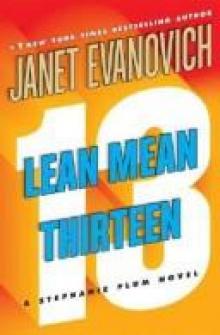 Lean Mean Thirteen
Lean Mean Thirteen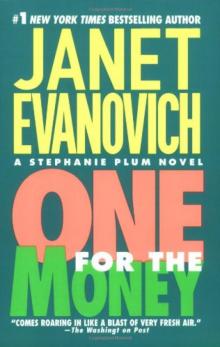 One for the Money
One for the Money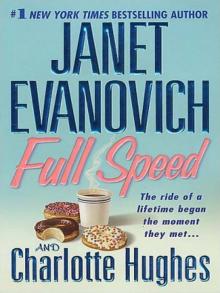 Full Speed
Full Speed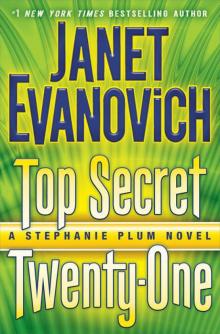 Top Secret Twenty-One
Top Secret Twenty-One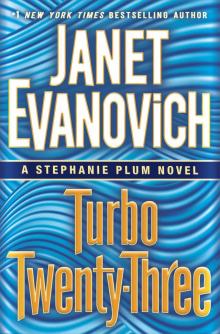 Turbo Twenty-Three
Turbo Twenty-Three Dangerous Minds
Dangerous Minds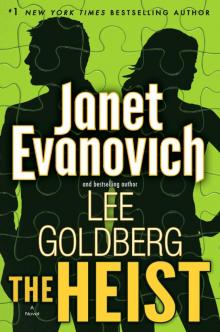 The Heist
The Heist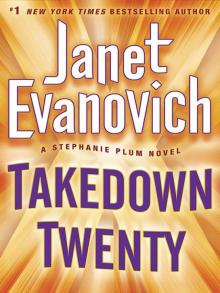 Takedown Twenty
Takedown Twenty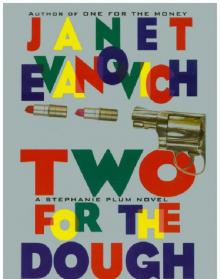 Two for the Dough
Two for the Dough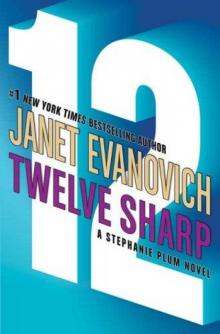 Twelve Sharp
Twelve Sharp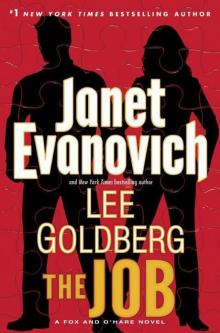 The Job
The Job Metro Girl
Metro Girl Full House
Full House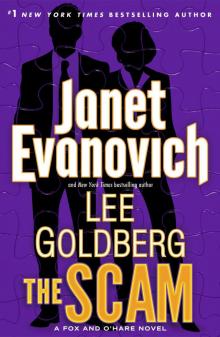 The Scam
The Scam Hot Stuff
Hot Stuff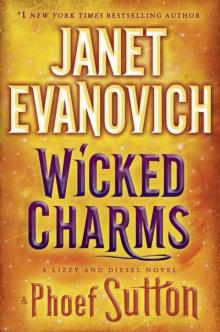 Wicked Charms
Wicked Charms Hero at Large
Hero at Large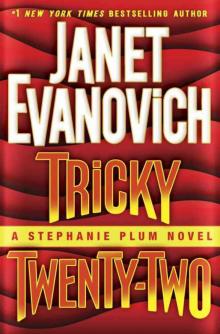 Tricky Twenty-Two
Tricky Twenty-Two Plum Lovin'
Plum Lovin'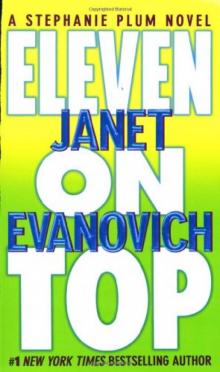 Eleven on Top
Eleven on Top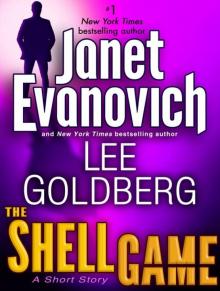 The Shell Game
The Shell Game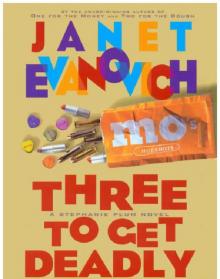 Three to Get Deadly
Three to Get Deadly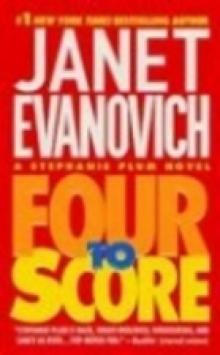 Four to Score
Four to Score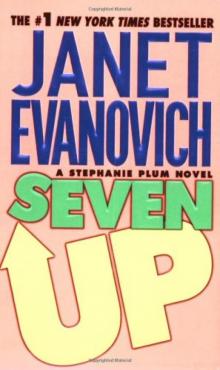 Seven Up
Seven Up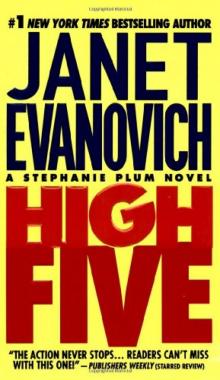 High Five
High Five Hot Six
Hot Six The Grand Finale
The Grand Finale Hard Eight
Hard Eight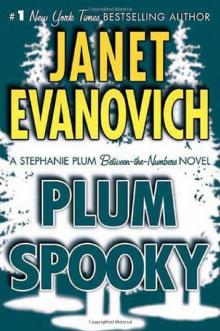 Plum Spooky
Plum Spooky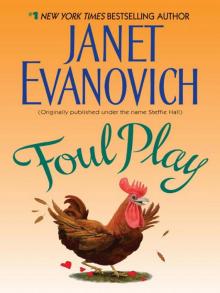 Foul Play
Foul Play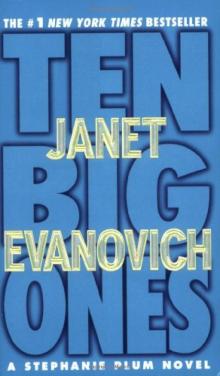 Ten Big Ones
Ten Big Ones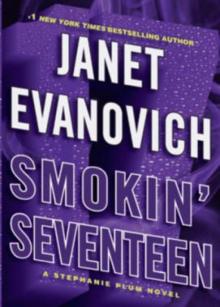 Smokin' Seventeen
Smokin' Seventeen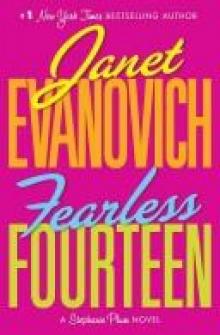 Fearless Fourteen
Fearless Fourteen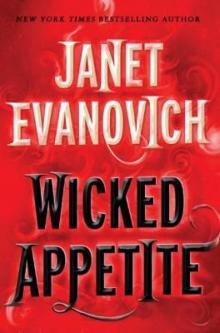 Wicked Appetite
Wicked Appetite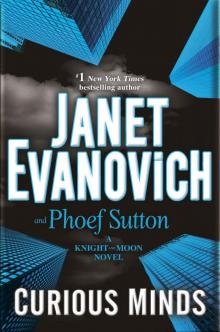 Curious Minds
Curious Minds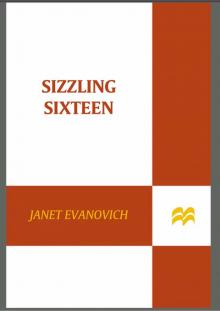 Sizzling Sixteen
Sizzling Sixteen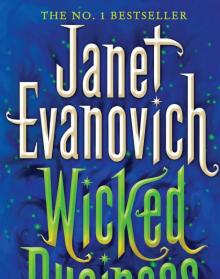 Wicked Business
Wicked Business The Big Kahuna
The Big Kahuna Explosive Eighteen
Explosive Eighteen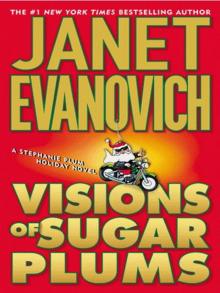 Visions of Sugar Plums
Visions of Sugar Plums Full Blast
Full Blast Back to the Bedroom
Back to the Bedroom Finger Lickin' Fifteen
Finger Lickin' Fifteen Smitten
Smitten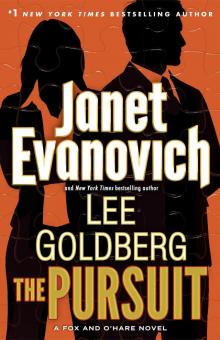 The Pursuit
The Pursuit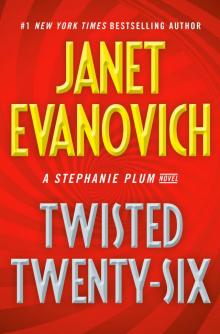 Twisted Twenty-Six
Twisted Twenty-Six Love in a Nutshell
Love in a Nutshell The Chase
The Chase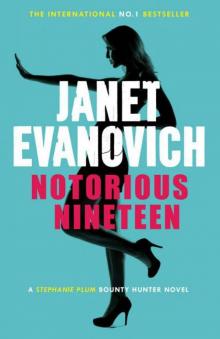 Notorious Nineteen
Notorious Nineteen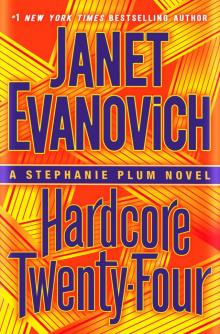 Hardcore Twenty-Four
Hardcore Twenty-Four The Rocky Road to Romance
The Rocky Road to Romance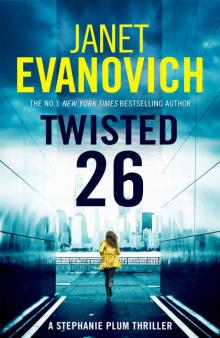 Twisted Twenty-Six (Stephanie Plum 26)
Twisted Twenty-Six (Stephanie Plum 26) Manhunt
Manhunt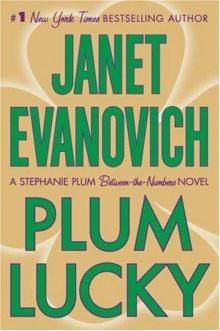 Plum Lucky
Plum Lucky Full Bloom
Full Bloom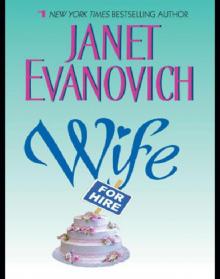 Wife for Hire
Wife for Hire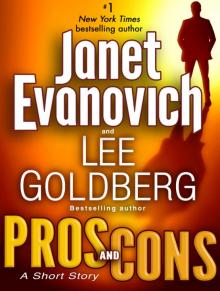 Pros and Cons
Pros and Cons Fortune and Glory
Fortune and Glory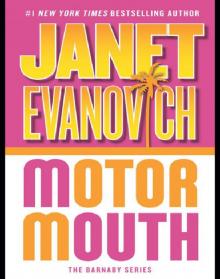 Motor Mouth: A Barnaby Novel
Motor Mouth: A Barnaby Novel Naughty Neighbor
Naughty Neighbor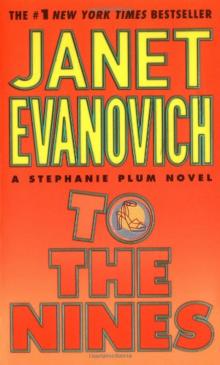 To the Nines
To the Nines The Husband List
The Husband List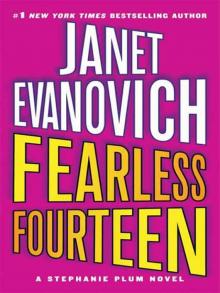 Fearless Fourteen: A Stephanie Plum Novel
Fearless Fourteen: A Stephanie Plum Novel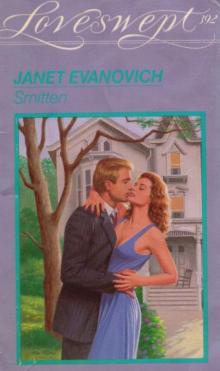 Smitten - LOVESWEPT - 392
Smitten - LOVESWEPT - 392 Plum 12 - Twelve Sharp
Plum 12 - Twelve Sharp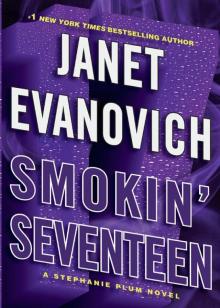 Smokin' Seventeen: A Stephanie Plum Novel (Stephanie Plum Novels)
Smokin' Seventeen: A Stephanie Plum Novel (Stephanie Plum Novels)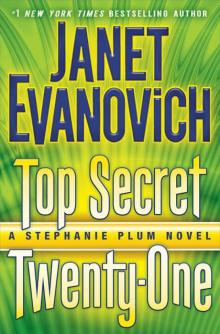 Top Secret Twenty-One: A Stephanie Plum Novel
Top Secret Twenty-One: A Stephanie Plum Novel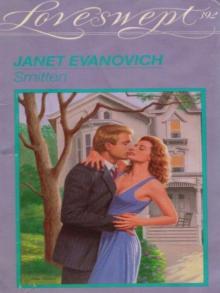 SMITTEN (Loveswept, No 392)
SMITTEN (Loveswept, No 392) Plum 10 - Ten Big Ones
Plum 10 - Ten Big Ones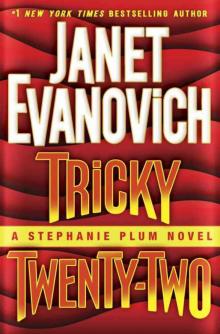 Tricky Twenty-Two: A Stephanie Plum Novel
Tricky Twenty-Two: A Stephanie Plum Novel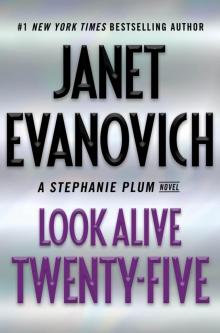 Look Alive Twenty-Five
Look Alive Twenty-Five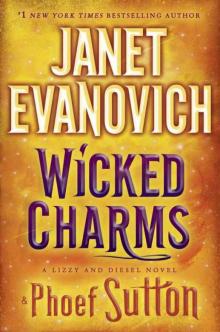 Wicked Charms: A Lizzy and Diesel Novel
Wicked Charms: A Lizzy and Diesel Novel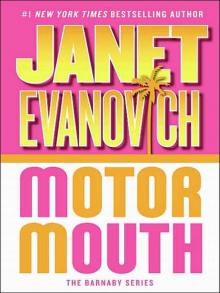 Motor Mouth
Motor Mouth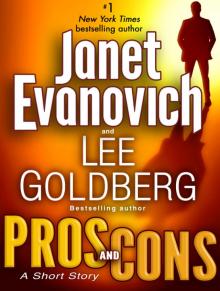 Pros and Cons: A Short Story
Pros and Cons: A Short Story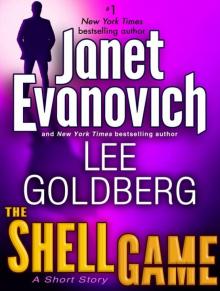 The Shell Game: A Fox and O'Hare Short Story (Kindle Single)
The Shell Game: A Fox and O'Hare Short Story (Kindle Single) Plum Boxed Set 1, Books 1-3 Stephanie Plum Novels)
Plum Boxed Set 1, Books 1-3 Stephanie Plum Novels) Between the Plums
Between the Plums